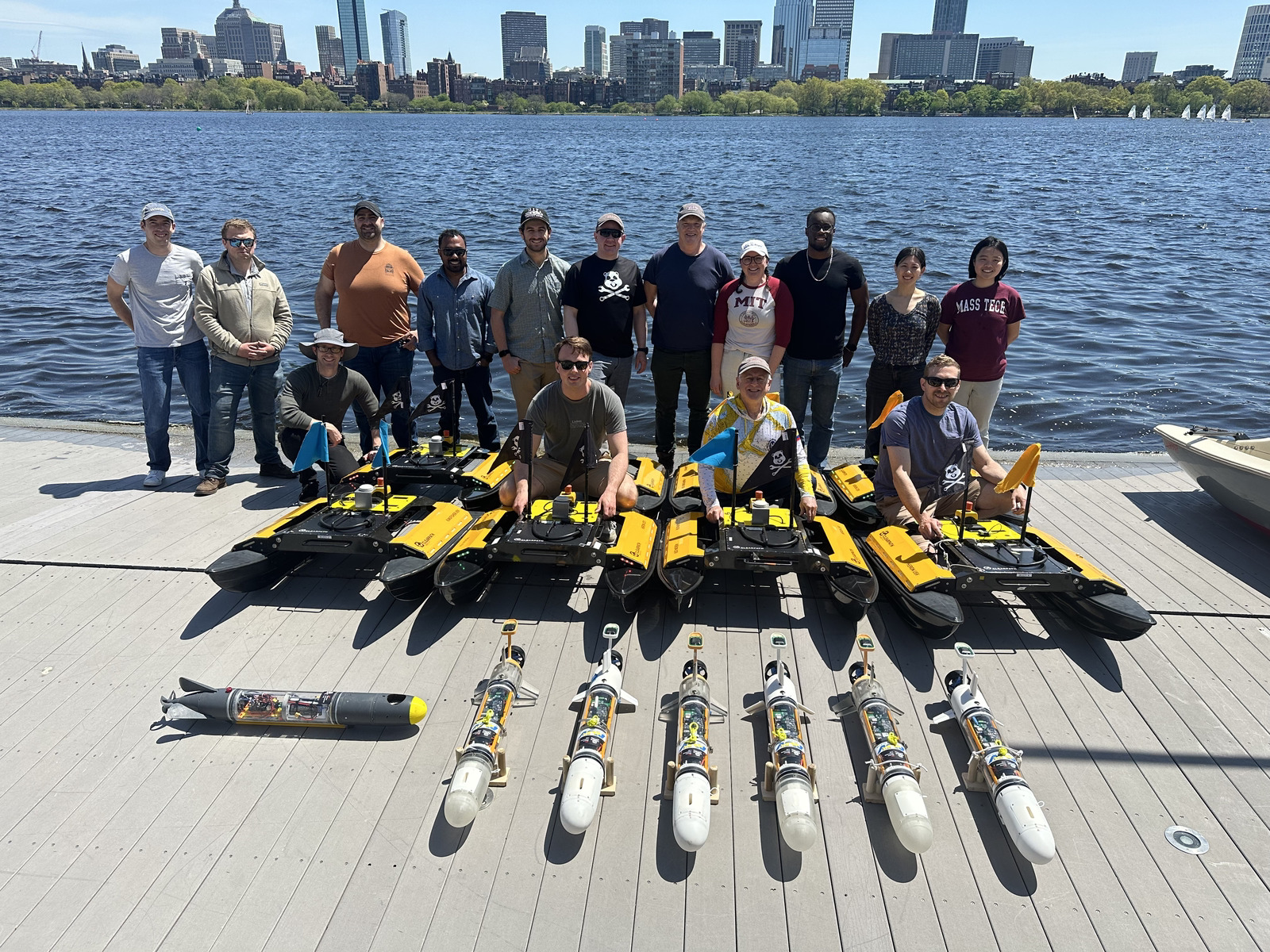The Marine Autonomy Lab (Pavlab)

The mission is to support undergraduate and graduate education and research in the field of marine robotics.

The primary focus is on autonomy algorithms applied to commercial marine vehicles. The work also includes underwater communications, sensing of the marine environment, detection and sensing of man-made objects and other vessels, and navigation and localization algorithms. A common thread is the goal to develop techniques that apply to any commercial vehicle. Student vehicle and sensor prototype development is also common.

Ties to On-Campus Research

The Marine Autonomy Bay is located at the MIT Sailing Pavilion and supports marine robotics field work for:
- The MOOS-IvP open source marine autonomy project (Dr. Mike Benjamin)
- MIT 2.680 Marine Autonomy Sensing and Communications (Dr. Mike Benjamin)
- MIT 2.S01 Introduction to AUVs (Dr. Supun Randeni, Capt Mike Sacarny, Dr. Mike Benjamin)
- The Laboratory for Autonomous Marine Sensing Systems (Prof. Henrik Schmidt)
- The MIT Sea Grant Program (Prof. Michael Triantafyllou)
- The Marine Robotics Group (Prof. John Leonard)


Robots: Six Sea Beaver II AUVs (Dr. Supun Randeni, Captain Mike Sacarny),
One Sea Scout AUV (Ray Turrisi),
Eight Heron USVs (Clearpath Robotics)

Sponsors

We gratefully acknowledge our sponsors, in particular Saab and Lockheed Martin, for their generous support of our students, research and lab facilities. Other current sponsors include MIT Lincoln Laboratory, Marine Robotics LLC, Pliant Energy, MIT Sea Grant, the Office of Naval Research, Aurora Flight Sciences, DARPA Information Innovation Office (I2O), DARPA Tactical Technology Office (TTO), General Dynamics Applied Physical Sciences. Support for the core development of MOOS-IvP was supported for almost two decades by the Office of Naval Research, Code 311, Dr. Behzad Kamgar-Parsi.

We also gratefully acknowledge Battelle for their tremendous support in sponsoring not only the Autonomy Bay, but also the research and post-docs, and the equipment, vehicles needed to carry out the research, since 2010. Battelle's support from roughly 2010-2016 had an enormous impact in establishing our lab and the MIT course 2.680 Marine Autonomy, which has been taught every Spring since 2012.

We also owe a debt of gratitude to the Department of Mechanical Engineering who support the yearly operation of the space on campus and supported the conversion of the space from sailing storage back in 2011/12. This space houses marine vehicles and support equipment allowing for greater access to the river for student education and research experimentation. This investment is driven by the recognized value in frequent, low-cost experimentation to quicken the tempo of the bulid-test-learn cycle.




